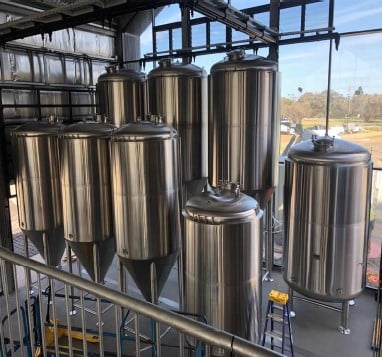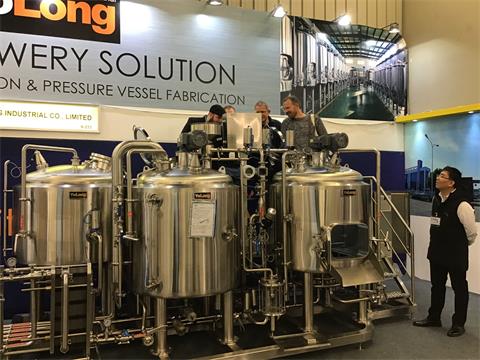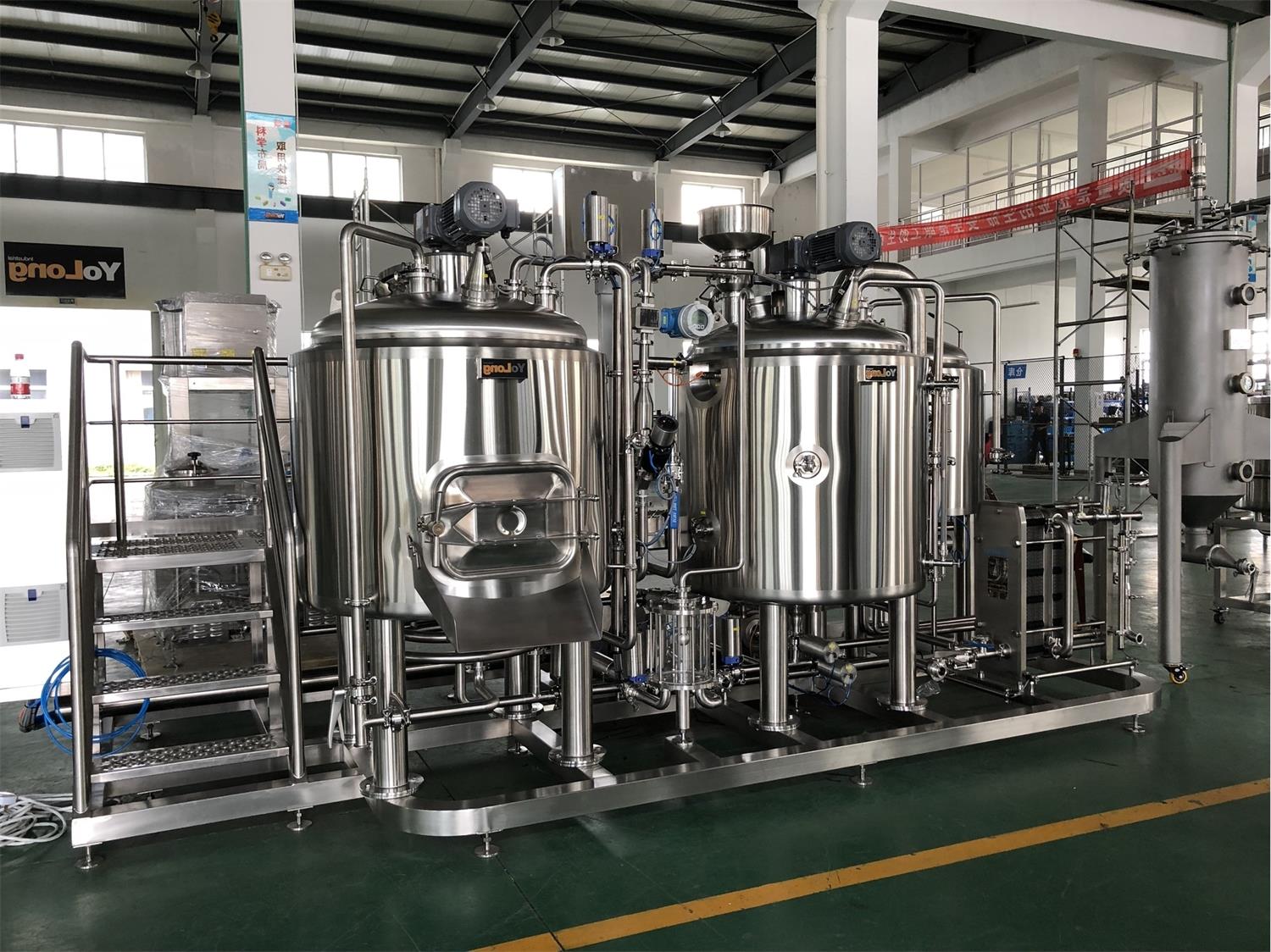Exploring the World of Large Scale Brewing Equipment
From humble beginnings in small craft breweries to the towering facilities of international brewing giants, the process of beer production has evolved dramatically. At the heart of this transformation lies large scale brewing equipment – the machinery responsible for turning raw ingredients into the delicious brews enjoyed by millions. In this article, we delve into the world of large scale brewing equipment, exploring its significance, components, benefits, challenges, and future prospects.
The Importance of Large Scale Brewing Equipment
In an industry where consistency and quality reign supreme, large scale brewing equipment plays a pivotal role. As demand for craft beers continues to rise, breweries must ensure that each batch maintains the desired flavor and characteristics. This equipment not only facilitates higher production volumes but also upholds the essence of the brew, captivating the taste buds of connoisseurs and novices alike.

Key Components of Large Scale Brewing Equipment
Brew Kettles and Mash Tuns
At the heart of every brewery, brew kettles and mash tuns orchestrate the intricate dance of mashing, boiling, and lautering. These colossal vessels accommodate vast quantities of malt and water, allowing for efficient extraction of sugars and flavors. The advancements in design and material have optimized heat distribution and conservation, enhancing the overall brewing process.
Fermentation Tanks
Once the wort is prepared, fermentation tanks step onto the stage. These behemoths house the transformation of sugars into alcohol, all while regulating temperature and pressure. Modern tanks feature state-of-the-art controls, enabling brewmasters to fine-tune fermentation conditions and achieve consistent results.
Cooling and Heating Systems
Efficient temperature control is paramount in brewing, and sophisticated cooling and heating systems take on this responsibility. These systems maintain precise temperatures throughout the brewing stages, from mashing to fermentation, contributing to the end product’s flavor profile and clarity.
Wort Chillers and Heat Exchangers
As the brew emerges from the boiling process, wort chillers and heat exchangers swiftly reduce its temperature. This rapid cooling not only halts enzymatic reactions but also prevents contamination. The intricate design of these components maximizes efficiency while minimizing water and energy consumption.
Automation and Efficiency in Brewing
Automated Control Systems
In the pursuit of efficiency, automation has emerged as a game-changer. Advanced control systems oversee various aspects of the brewing process, from ingredient addition to temperature modulation. This automation not only reduces human error but also ensures precise and repeatable outcomes.
Benefits of Automation
The integration of automation brings forth an array of benefits. Consistency in product quality, streamlined production schedules, and reduced resource wastage are among the advantages that automation offers. This technological leap empowers breweries to meet market demands without compromising on excellence.
Quality Control and Consistency
Monitoring and Testing Equipment
Maintaining the desired flavor profile and quality standards requires vigilant monitoring. Breweries employ a range of monitoring and testing equipment to assess factors such as pH levels, gravity, and microbial activity. These insights guide brewmasters in making real-time adjustments, ensuring each batch meets the highest standards.
Maintaining Consistent Flavors
Consistency is the hallmark of successful breweries. Large scale brewing equipment aids in achieving this by minimizing variables that could affect flavor. From consistent mashing temperatures to controlled fermentation conditions, the equipment contributes to a reliable flavor experience with every sip.
Scaling Up Production
Meeting Growing Demand
As consumer preferences shift towards craft beers, breweries often find themselves facing increasing demand. Large scale brewing equipment facilitates the necessary expansion without sacrificing quality. It empowers breweries to create more of what customers love while maintaining the distinct characteristics that set their brews apart.
Challenges and Considerations
Scaling up production isn’t without its challenges. Breweries must navigate complexities such as supply chain management, workforce training, and maintaining brand identity. The careful integration of new equipment and processes is essential to ensure a seamless transition.
Sustainability in Large Scale Brewing
Energy Efficiency
In an era of heightened environmental awareness, sustainability takes center stage. Large scale brewing equipment manufacturers are innovating to minimize energy consumption. Energy-efficient systems, such as heat recovery systems, help breweries reduce their carbon footprint while optimizing operational costs.
Waste Management
Brewing generates waste, but modern equipment offers solutions. Closed-loop systems recycle water, reducing water consumption and wastewater discharge. Additionally, spent grain can be repurposed as animal feed or used in the production of other products, contributing to a circular economy.
Expertise and Training
Skilled Brewmasters
While equipment is crucial, the human element remains irreplaceable. Skilled brewmasters possess a deep understanding of the brewing process, allowing them to harness the potential of large scale equipment. Their expertise ensures that technology enhances creativity rather than stifles it.
Training Programs
Breweries invest in training programs to equip their teams with the knowledge needed to operate and maintain the equipment effectively. These programs cover everything from equipment mechanics to quality control protocols, empowering employees to excel in their roles.
Choosing the Right Equipment
Customization Options
Every brewery has unique requirements. Large scale brewing equipment manufacturers offer customization options, allowing breweries to tailor their equipment to their specific needs. From vessel sizes to control systems, this flexibility ensures optimal performance.
Budget Considerations
Investing in large scale brewing equipment is a substantial decision. Breweries must balance their aspirations with financial realities. While premium equipment offers advanced features, budget-friendly options can still provide exceptional quality and performance.
Maintenance and Longevity
Regular Maintenance Practices
To ensure the longevity and reliability of large scale brewing equipment, regular maintenance practices are essential. Routine inspections, cleaning, and calibration of sensors and controls prevent unexpected downtime and maintain consistent brewing performance.
Extending Equipment Lifespan
Breweries invest substantial resources in their equipment, making equipment longevity a priority. Proper maintenance, combined with the use of high-quality materials, can extend the lifespan of brewing equipment, providing a solid return on investment over the years.
Future Trends in Large Scale Brewing
Innovations in Brewing Technology
As technology continues to advance, so does large scale brewing equipment. Innovations in automation, data analytics, and sensor technology will further enhance precision and efficiency, allowing breweries to push the boundaries of creativity while maintaining consistency.
Sustainability Advancements
The future of large scale brewing is undeniably intertwined with sustainability. Equipment manufacturers are prioritizing eco-friendly solutions, from water-saving technologies to renewable energy integration. Breweries will increasingly embrace these advancements to reduce their environmental footprint.

Conclusion
In the ever-evolving world of brewing, large scale brewing equipment serves as the backbone of innovation, quality, and efficiency. From brew kettles to automation systems, each component contributes to the art of crafting exceptional beer on a grand scale. As the industry continues to grow, breweries that leverage the capabilities of this equipment will stand at the forefront of the craft beer revolution.
FAQs
- Q: Is large scale brewing equipment only for commercial breweries?
- A: No, while commercial breweries commonly use such equipment, some enthusiasts invest in larger setups for personal use or microbreweries.
- Q: Can automation replace the role of a skilled brewmaster?
- A: Automation enhances efficiency, but a skilled brewmaster’s expertise is crucial for maintaining quality and creativity.
- Q: How does large scale brewing equipment contribute to sustainability?
- A: Equipment innovations focus on energy and water efficiency, waste reduction, and sustainable sourcing, reducing the environmental impact.
- Q: Are there budget-friendly options for large scale brewing equipment?
- A: Yes, manufacturers offer a range of equipment options to accommodate different budgets without compromising quality.
- Q: What role does large scale equipment play in maintaining consistent flavors?
- A: Precise temperature control, automation, and monitoring ensure that each batch meets the desired flavor and quality standards.
Additional FAQs about Large Scale Brewing Equipment
- Q: What brewhouse size is considered “large scale” today?
A: In 2025, commercial “large scale” typically starts around 30–60 BBL brewhouses with multi-vessel systems and extends to 100+ BBL for regional plants. The definition varies by market and distribution scope. - Q: How do I estimate total connected load (electrical) for a 60 BBL system?
A: As a rule of thumb: brewhouse heating 40–120 kW (steam boiler or electric), cellar pumps/controls 5–15 kW, glycol chiller 15–40 kW (depending on tonnage), packaging 10–50 kW. Always perform a load calc with your OEM and electrician. - Q: Which heat source is most cost-effective at scale: steam, direct fire, or electric?
A: Steam remains the most versatile and efficient for large scale brewing equipment due to rapid, even heat transfer and integration with heat recovery. Electric can be viable where power is inexpensive/low-carbon; direct fire is less common at very large volumes due to efficiency and emissions. - Q: What KPIs should breweries track when scaling up equipment?
A: Brewhouse yield (%), brewhouse turns per week, cellaring capacity utilization, energy intensity (kWh/BBL), water ratio (bbl water per bbl beer), DO/CO2 metrics, and packaging efficiency (uptime, OEE). - Q: How do automation upgrades affect staffing?
A: Advanced automation can reduce manual interventions 20–40% and enable leaner shifts, but you still need trained brewers, QA techs, and maintenance. Upskilling is more impactful than headcount cuts.
2025 Industry Trends for Large Scale Brewing Equipment
- Consolidation favors modular, expandable skids (mash/lauter split, parallel kettles) to add capacity without full plant overhauls.
- Sustainability ROI improved: heat recovery from wort cooling and stack economizers now standard in many mid/large installs.
- Pressure-capable unitanks and inline QC sensors (DO, turbidity, CO2) increasingly bundled with control systems for data-driven decisions.
- Supply chains stabilized vs. 2021–2023, but lead times for custom stainless and automation cabinets still extend projects.
- Tighter wastewater and CO2 emissions policies push pretreatment and CO2 recovery even for regional breweries.
2025 Benchmarks and CapEx Signals
| Metric (North America/EU, 2025) | Typical Range | Notes/Source |
|---|---|---|
| 60 BBL 4-vessel brewhouse (installed) | $750k–$1.4M | OEM quotes; scope-dependent (platforms, automation) |
| 120 BBL unitank (316L, pressure-rated) | $95k–$150k | Pressure rating, ports, polish level affect pricing |
| CO2 recovery skid (5–20 hl/h) | $180k–$350k | Smaller-capacity packages now offered |
| Glycol chiller tonnage per 100 BBL cellar | 12–20 tons | Climate/insulation/load profile dependent |
| Water-to-beer ratio (best-in-class) | 2.5–3.5:1 | Brewers Association sustainability benchmarks |
| Energy intensity (combined thermal + electric) | 12–22 kWh-eq/BBL | Varies with boiler/electric mix and heat recovery |
| Average OEM lead time (custom) | 12–24 weeks | Panels and pressure vessels are bottlenecks |
Sources: Brewers Association Sustainability Benchmarking (2024–2025), MBAA Technical Quarterly, OEM catalogs/specs (GEA, Krones Steinecker, Alfa Laval, ProBrew, ABE, Premier Stainless), vendor disclosures.
Latest Research Cases
Case Study 1: Heat Recovery Cuts Thermal Load in a 60 BBL Brewhouse (2025)
- Background: Rapidly growing regional brewery sought to reduce gas usage and stabilize knock-out temps on a new large scale brewing equipment line.
- Solution: Installed wort–water plate heat exchanger with regenerative loop, stack economizer on steam boiler, and hot liquor tank (HLT) integration with automated setpoint control.
- Results: 22–28% reduction in natural gas per BBL, mash-in water consistently at target ±1°C, brewhouse turns increased from 2.2 to 3.0/day without adding boiler capacity.
Case Study 2: CO2 Recovery for Mid-Scale Fermentation Cellar (2024/2025)
- Background: 90,000 BBL/year facility faced rising CO2 costs and sustainability targets.
- Solution: Implemented modular CO2 recovery skid capturing fermentation CO2 from 60–120 BBL unitanks; added polishing and storage.
- Results: Recovered 45–60% of annual CO2 demand, cutting purchased CO2 by ~38% and improving supply security during market shortages; payback estimated at 3.5–5 years depending on CO2 pricing.
Sources: Vendor application notes and BA/MBAA conference proceedings; validate specifics with your OEM and local utility incentives.
Expert Opinions
- John Mallett, VP of Brewing and Quality, Bell’s Brewery
- Key View: “Invest first in cleanability and heat integration. The cheapest BBL you’ll ever make is the one you recover through efficiency.”
- Reference: Brewers Association quality resources (https://www.brewersassociation.org/)
- Mary Pellettieri, Author of Quality Management for Breweries; Co-founder, La Pavia Beverage
- Key View: “As systems scale, QA must scale with them—inline sensing, SOPs, and verification turn large scale brewing equipment into consistent beer, not just more beer.”
- Reference: BA Quality tools (https://www.brewersassociation.org/)
- Bart Watson, Chief Economist, Brewers Association
- Key View: “In a flat-to-slightly-declining volume environment, right-sizing equipment and improving energy/water intensity often outperform sheer capacity additions on ROI.”
- Reference: BA 2024–2025 industry updates (https://www.brewersassociation.org/)
Practical Tools and Resources
- Brewers Association Sustainability Benchmarking and Best Practices: https://www.brewersassociation.org/
- MBAA Technical Quarterly and podcast (equipment, CIP, heat recovery): https://www.mbaa.com/
- OEM Engineering Resources:
- GEA brewing technologies: https://www.gea.com/
- Krones Steinecker (brewhouse, fermenters, CO2 recovery): https://www.krones.com/
- Alfa Laval (heat exchangers, separation): https://www.alfalaval.com/
- Chiller and Glycol Sizing:
- G&D Chillers: https://gdchillers.com/
- Pro Chiller Systems: https://prochiller.com/
- CO2 Recovery and Gas Management:
- Pentair Haffmans: https://foodandbeverage.pentair.com/
- Chart Industries: https://www.chartindustries.com/
- Safety and Compliance:
- OSHA confined space/LOTO: https://www.osha.gov/
- ASME pressure vessel codes: https://www.asme.org/
- Production and QC Software:
- Ekos: https://www.goekos.com/
- Ollie: https://www.getollie.com/
- BrewIQ/inline analytics (Anton Paar, Hamilton): https://www.anton-paar.com/ | https://www.hamiltoncompany.com/
Last updated: 2025-09-04
Changelog: Added 5 new FAQs; included 2025 trends with benchmark table; summarized two 2024/2025 case studies; provided expert viewpoints; compiled practical tools/resource links.
Next review date & triggers: 2026-03-01 or earlier if utility rates shift >10%, CO2 pricing/availability changes, or BA releases updated sustainability benchmarks.
Share this entry
Interested in learning more about Brewing Systems including additional details and pricing information? Please use the form below to contact us!
YOLONG BREWERY EQUIPMENT FAQS
- Commercial Brewery / Craft Brewery / Microbrewery / Nanobrewery
- What is The Difference Between Craft Beer and Industrial Beer?
- The Bespoke Differences In Custom Brewing Systems
- Everything You Need to Know About Kettle Souring
- How to Choose Brewing Equipment for Your business?
- How To Choose The-Best Partner To Build Your Commercial Microbrewing System?
- Two Detection Sensors That You Need To Use In Your Brewhouse System
- Remote Control Applications in Brewing Equipment/How does it work?
- How To Clean Your Brand New Brewery Tanks?

